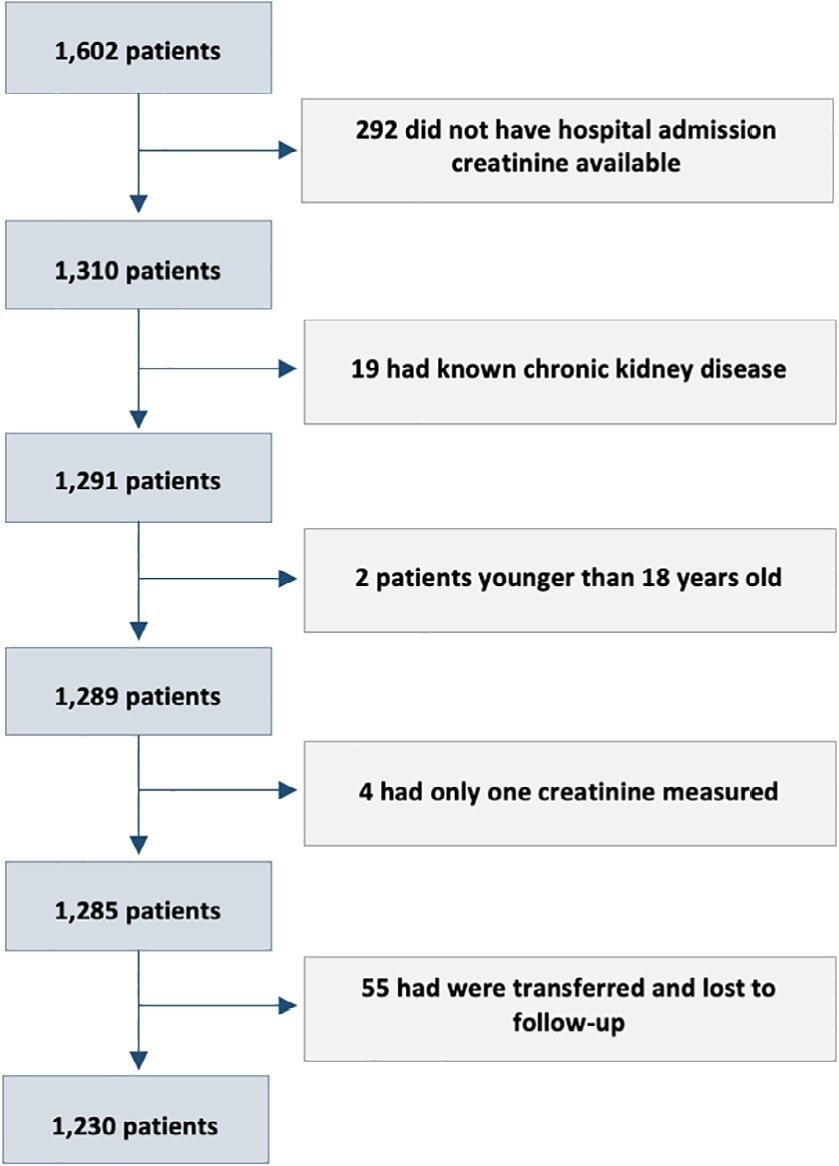
Coronavirus disease 2019 (COVID-19) has been reported to cause acute kidney injury (AKI).(-) Although severe acute respiratory syndrome coronavirus 2 (SARS-CoV-2) may directly harm the kidneys through endothelial and coagulation dysfunction,() AKI in COVID-19 may also be related to additional organ dysfunctions and other host factors, including mechanical ventilation. The incidence of AKI in hospitalized COVID-19 patients has been suggested to be close to 10.6%, with AKI being strongly associated with increased mortality.() We sought to describe the occurrence of AKI in a cohort of hospitalized patients in a private network of hospitals in Brazil during the first COVID wave (March to August 2020). Second, we assessed the interplay between the time of initiation of mechanical ventilation and the occurrence of AKI. Our initial hypothesis was that AKI would predominantly occur after the initiation of mechanical ventilation. The study was approved by the centralized ethics committee with a waiver for consent due to the retrospective nature of its analysis based on anonymized data.
We initially selected all 1,602 patients admitted to 45 hospitals in the first wave who had creatinine levels obtained at admission, who did not have a diagnosis of chronic kidney disease, who were older than 18 years old, who had at least one additional creatinine measurement, and who had known hospital outcomes (not transferred to another facility), as shown in . AKI was defined using two different definitions based on daily information collected up to 14 days after hospital admission: (1) any increase in serum creatinine above the admission creatinine of at least 0.3mg/dL or the use of kidney replacement therapy (that is, any Kidney Disease: Improving Global Outcomes – KDIGO criteria of at least one); and (2) any doubling of creatinine or use of kidney replacement therapy – KRT (that is, a KDIGO of at least 2). Hospital outcome was also collected from records. The patients’ information is shown in .
[…]
Search
Search in:


Comments